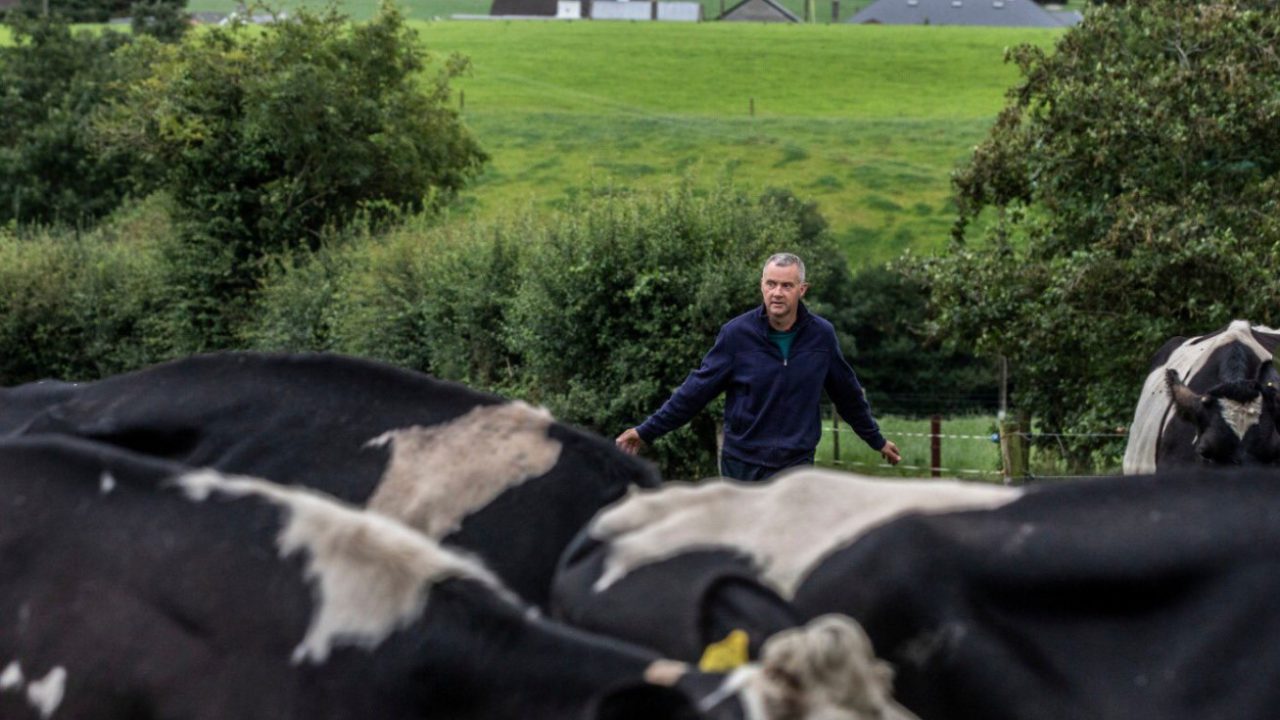The winners of the 2019 National Dairy Council (NDC) and Kerrygold Quality Milk Awards have been revealed as Kieran Hearne and his family.
From Rathgormack, Co. Waterford, Kieran Hearne was nominated for the accolade by Glanbia, going on to secure the top prize at the ceremony held today, Wednesday, October 2, winning €5,000 in prize money and the perpetual cup.
A second generation farmer, Hearne has been farming since 1990. He and his wife Ann expanded the farm to make it more profitable and sustainable as well as to produce top-quality milk.
The Hearnes also took home the sustainability award on the day.
- Best Somatic Cell Count Award – Donovans family, Co. Cork, nominated by Dairygold;
- Pioneering in Dairy Award – McCoy family, Co. Monaghan, nominated by Lakeland Dairies;
- Model Business Collaboration Award – PMC Dairy Farm, Co. Waterford, nominated by Glanbia;
- Best Milk Solids Award – Ryan Family, Co. Tipperary, nominated by Arrabawn;
- Best Milk Solids Per Cow Award – Charles McCandless, Co. Donegal, nominated by Aurivo; and
- Development Award – O’Driscoll family, Co. Cork, nominated by Drinagh Co-op.
The Hearnes were chosen from 13 farming family finalists representing 11 co-ops at the 2019 awards.
The NDC and Kerrygold Quality Milk Awards is an annual national award programme which recognises the highest standards of excellence in dairy farming.
This year, the awards were expanded to include criteria demonstrating sustainable dairy farming – with a particular focus on how Irish dairy farmers care for the environment and their animals.
Zoe Kavanagh, CEO of the National Dairy Council, said: “The landscape that we’re living in is changing.
Now more than ever consumers are demanding natural, sustainably produced food – transparency, authenticity, taking responsibility for your health and keeping it real are now more important than ever.
“Irish dairy has one of the lowest carbon footprints internationally, primarily due to the unique grass-fed, family-based Irish farming system which is extremely efficient and involves less intensive farming.
“It is in all our interests to continue to nurture that approach and support new innovations in soil fertility, water quality and nutrient management,” Kavanagh said.
